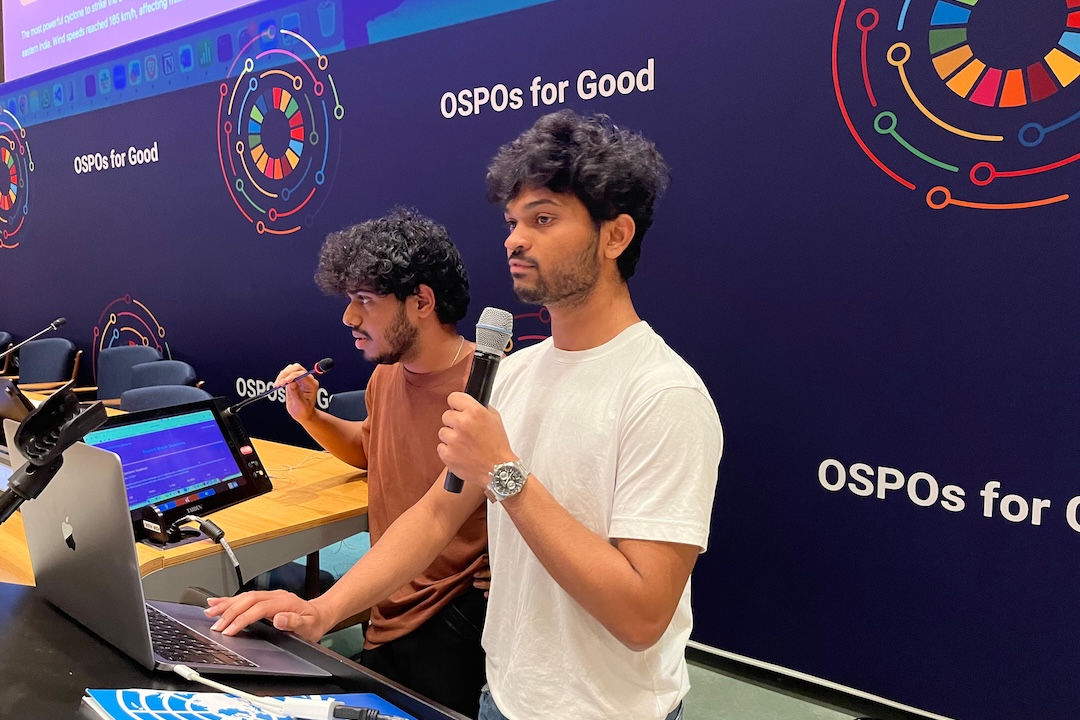As part of the 2025 United Nations (UN) Open Source Week, over 200 technologists and innovators from across the globe convened at UN headquarters in New York City to participate in UN Tech Over, a hackathon series featuring three distinct but interrelated challenges. Competing in the first event in the series, “Ahead of the Storm: Open Geospatial Analytics for Children-Centric Climate Emergency Response,” were Dhairya Shah and Anket Patil, graduate students in computer science, who won best overall.
Shah and Patil are no strangers to hackathons, as they won the track focused on health, education, and equality in last Spring’s Innovation Hackathon hosted by George Hacks. Their mentor at that event encouraged them to apply to UN Tech Over, where they competed on a much larger scale.
Designed to showcase the power of tech and collaboration in driving meaningful change, “Ahead of the Storm” challenged teams to design scalable solutions for emergency preparedness, with a particular focus on protecting vulnerable communities and marginalized groups. This was clearly demonstrated in the problem statement Shah and Patil chose, which focused on the impact natural disasters will have on children.
“Let’s say a nation has some predicted natural disaster, and now we need to analyze all of the geospatial data they have to calculate the possible impact on children. If the path changes or something else happens, they need to be ready so that the UN can coordinate with the government and make better decisions for the children,” said Patil.
The team’s solution to help policymakers perform this vital work was a tool that analyzes the data for them. By examining infrastructure in the affected area, particularly schools and hospitals, and the terrain and water bodies surrounding it, the tool assesses impact and aids in decision-making. In the case of hurricanes, noting the location of water bodies is critical due to the possibility of water contamination and disease caused by the influx of dirt and debris.
For two days straight, the team used their data analytics skills to process geospatial data from Bangladesh. Because of their previous collaborations and long-term friendship, they are familiar with how to divide the work effectively and maintain open communication to co-create this impactful tool.

When presenting to the judges, the team showcased the potential of their tool to help communities across the globe, which Shah credits with winning them this award. As a result of competing on this global stage, they walked away with increased confidence in not only their technical knowledge but also their presentation skills.
“Everybody will develop a tool, but it’s all about how you can demonstrate to the judges that it will have the desired impact. If they aren’t a tech person, they won’t understand the tool, but regardless, how it was created and the impact is what matters,” said Shah. “If someone can resonate with the impact of using your tool, then your product will stand out.”


